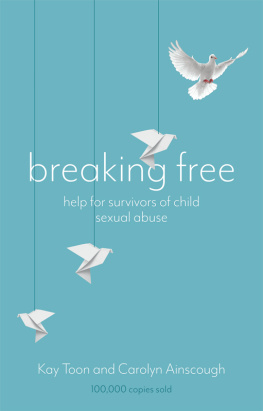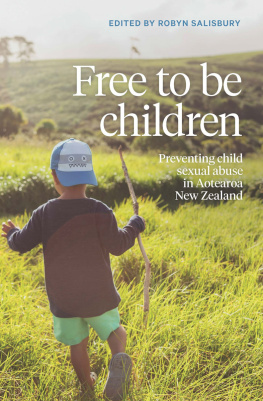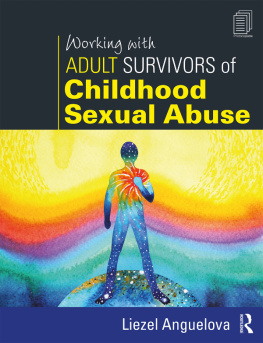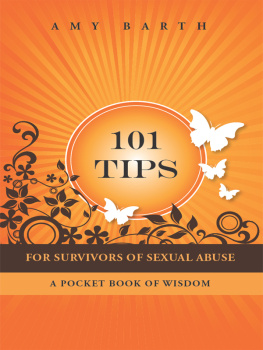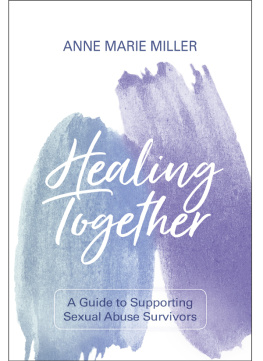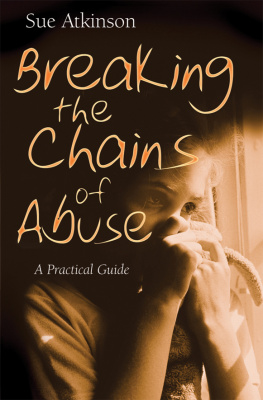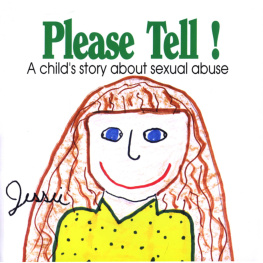
Breaking Free
Kay Toon was born in Manchester. She began her career by qualifying with an honours degree and a postgraduate research degree in computer science and worked for International Computers Limited as a computer programmer and systems engineer. Kay then worked as a lecturer in the Psychology Department at the University of Leeds.
Carolyn Ainscough was born in Bolton, Lancashire. After studying psychology at St Andrews University, she worked with children, young people and disadvantaged communities in Manchester and Salford.
Kay and Carolyn met at Leeds University in 1983 when training as clinical psychologists, and they worked together in the NHS in Wakefield, West Yorkshire. In those days, the sexual abuse of children and young people was rarely mentioned and there was very little awareness of the consequences of child abuse on the future lives of adult survivors. Kay and Carolyn presented at over 200 training workshops to increase awareness of the prevalence of child sexual abuse and the significant harm it can cause to children and young people, aiming also to pass on ways to help survivors break free from the long-term effects of abuse. They gave papers at over 30 national and international conferences, and featured in many newspaper articles and on radio and television programmes.
Sadly, Carolyn died in October 2000, aged only 43. She will always be remembered for her pioneering clinical work, her dedication to helping survivors of any kind of abuse, her writing and her personal warmth and generous friendship. This book is part of her legacy. Via training workshops, conferences, websites, press and radio interviews, smartphone apps and other social media outlets, Kay continued to spread the word and increase awareness of how it is possible for survivors to overcome, or at least mitigate, the damaging effects of child sexual abuse.
Kay became an accredited Consultant (Europe) in EMDR (eye movement desensitization and reprocessing) therapy and practised as an independent clinical psychologist in Leeds before retiring in 2016. In her private therapy practice, Kay specialized in working with people who had experienced a wide range of traumas; she also successfully used EMDR for rapid performance enhancement with high achievers.
Kay and Carolyn are authors of the Breaking Free Workbook: Practical help for survivors of child sexual abuse , a companion volume to this book, consisting of practical, detailed exercises to help survivors take their power back and move on from the impact of sexual abuse.
Breaking Free
Help for survivors of child sexual abuse
Third edition
KAY TOON AND CAROLYN AINSCOUGH

Children exposed to sexual abuse give us a tragic insight into the untold damage such abuse generates. Often the consequences are devastating. The groundbreaking Adverse Childhood Experiences (ACEs) study (1998) highlighted how childhood experiences both positive and negative have the potential to shape the future probability of an individual becoming a victim or perpetrator of violence, lifelong physical and psychological health and well-being, and opportunities for the future. Early adverse childhood experiences represent the most pressing public health issue of our time. Child sexual abuse is a crime much greater than official statistics show being often under-reported, undetected and insufficiently prosecuted.
In the early 1990s, I established two Adult Survivors of Childhood Sexual Abuse Networks one on the Wirral (female survivors) and the other in Liverpool (male survivors). These networks were for adult mental health populations at a time when a psychiatric diagnosis was deemed separate from earlier experiences of child sexual abuse although for some such a viewpoint pervades today. As a young mental health clinician, I came across Ainscough and Toons Breaking Free: Helping survivors of child sexual abuse (1993). This book became an integral resource for me and was invaluable in best empowering me in working with survivors. It informed my practice enormously. What stood out for me were phenomenological patterns in survivors journeys, discussed, for example, in the chapters on survival and recovery, speaking out, acknowledging the damage, wondering Why me? and Why didnt I tell?, silent ways of telling and so on. This book shaped my clinical practice, clinical supervision, teaching and learning, and research.
When we explore meta-theories surrounding why psychotherapy and counselling work, first we see that clients need a plausible explanation to account for their symptoms and experiences. Second, they need a road map to orientate themselves, to see how best they can address their trauma experiences. Breaking Free is an excellent road map a well-written, well-structured and robust resource for survivors, mental health workers, counsellors, psychotherapists and psychologists working in the field. I highly recommend it.
Dr Derek Farrell, CPsychol, PhD, CSi, AFBPsS
Principal Lecturer in Psychology, University of Worcester, President of EMDR UK and Ireland; Vice-president of EMDR Europe, President of Trauma Aid Europe, BPS Chartered Psychologist, EMDR Europe Accredited Trainer and Consultant and BABCP Accredited Cognitive Behavioural Psychotherapist
www.colloquy.me.uk @DPatrickF
We first met in 1983 when training to be clinical psychologists at the University of Leeds. During our training, the words child sexual abuse were hardly mentioned certainly not in relation to adults who were experiencing psychological problems. After qualifying as clinical psychologists, we both took up posts with Wakefield Health Authority working with adults (referred by GPs, psychiatrists and other professionals) who were experiencing emotional difficulties or problems coping with their lives. These clients came to us with many different problems including depression, anxiety, eating disorders, sexual and relationship problems, phobias and self-harm but as we talked with them, many began to disclose that they had been sexually abused as children or young people, and we discovered early abuse was a major contributor to their current difficulties.
At first, we worked individually with clients who had been sexually abused, and then in 1987 we set up our first survivors therapy group. Group work offered a space in which the survivors were able to share their problems and experiences with others who were in a similar position, to help and encourage each other and to set up long-lasting support networks and friendships.
A psychology service was set up in Wakefield for survivors, comprising a regular programme of survivors groups as well as individual work with people who had been sexually abused as children or young people. The groups met weekly for between 15 and 20 weeks and then continued to meet weekly as self-help/support groups. These therapy groups offered survivors a safe place in which they were able to share the pain of their experiences, work through their feelings and begin to resolve their problems.
The number of survivors on the waiting list for psychology services was growing, as more and more people became brave enough to disclose that they had been sexually abused. We decided to write a booklet on child sexual abuse to help and encourage the survivors who were waiting for therapy. Some of the former members of the survivors groups were keen to help by contributing the writing they had produced as part of their own therapy.
The booklet soon expanded into a book, and ACT (Abuse Counselling and Training), an action group of Wakefield survivors committed to helping other survivors and working towards the prevention of sexual abuse, was founded. Over the years, the original members of ACT have spread their wings and developed fulfilling lives for themselves. ACT was superseded by Moving On, a support and discussion group for survivors who had completed therapy in the psychology service.
Next page
